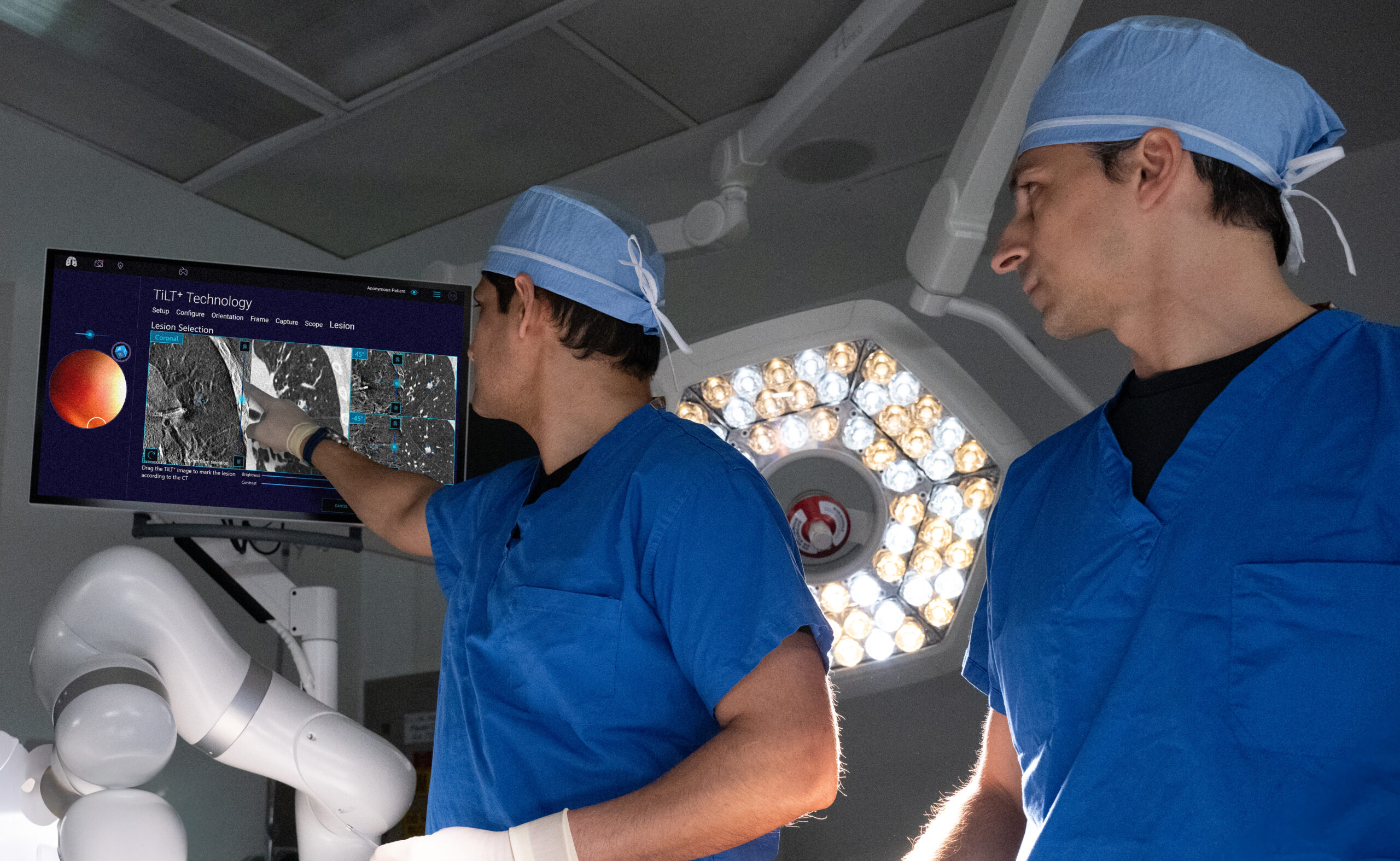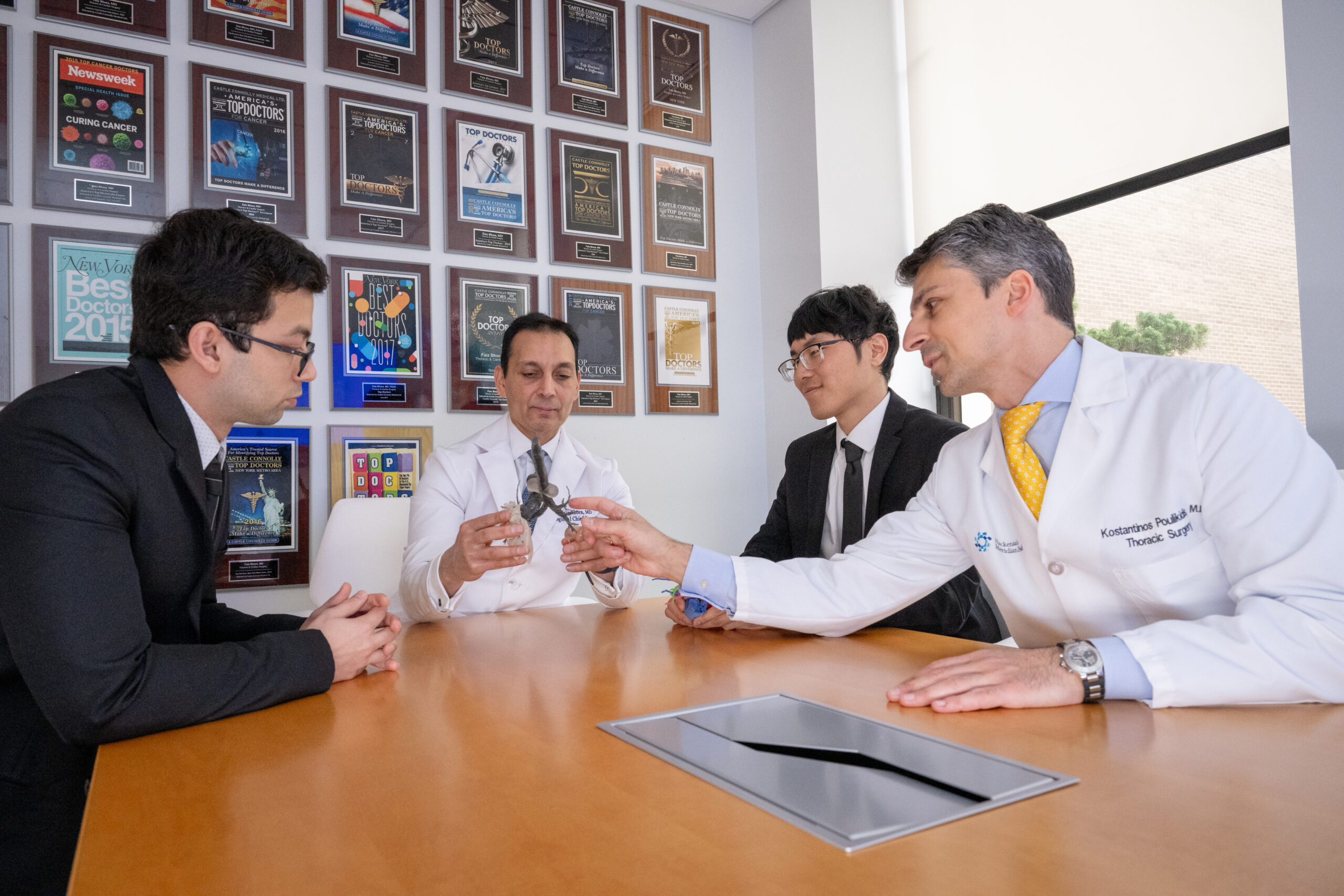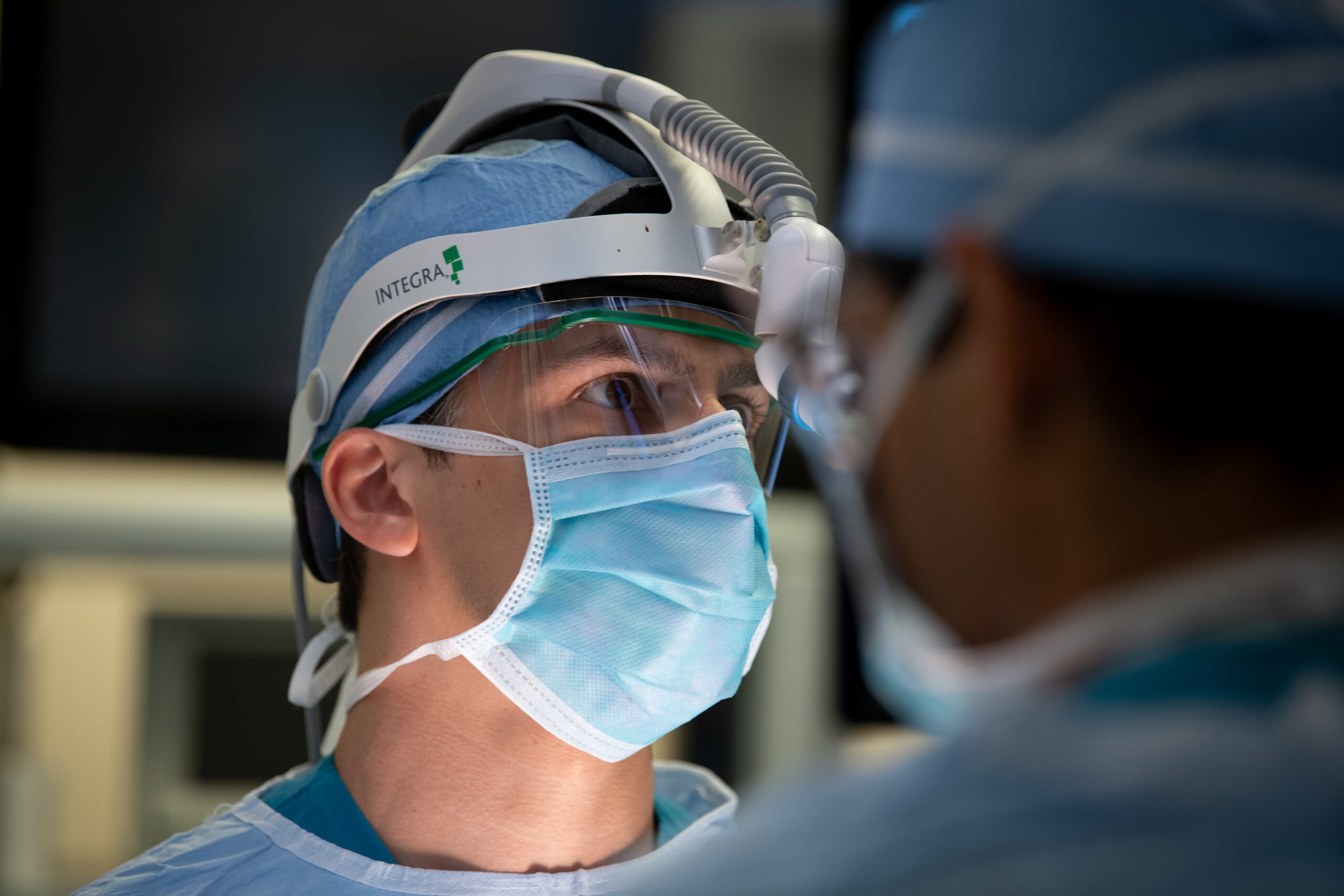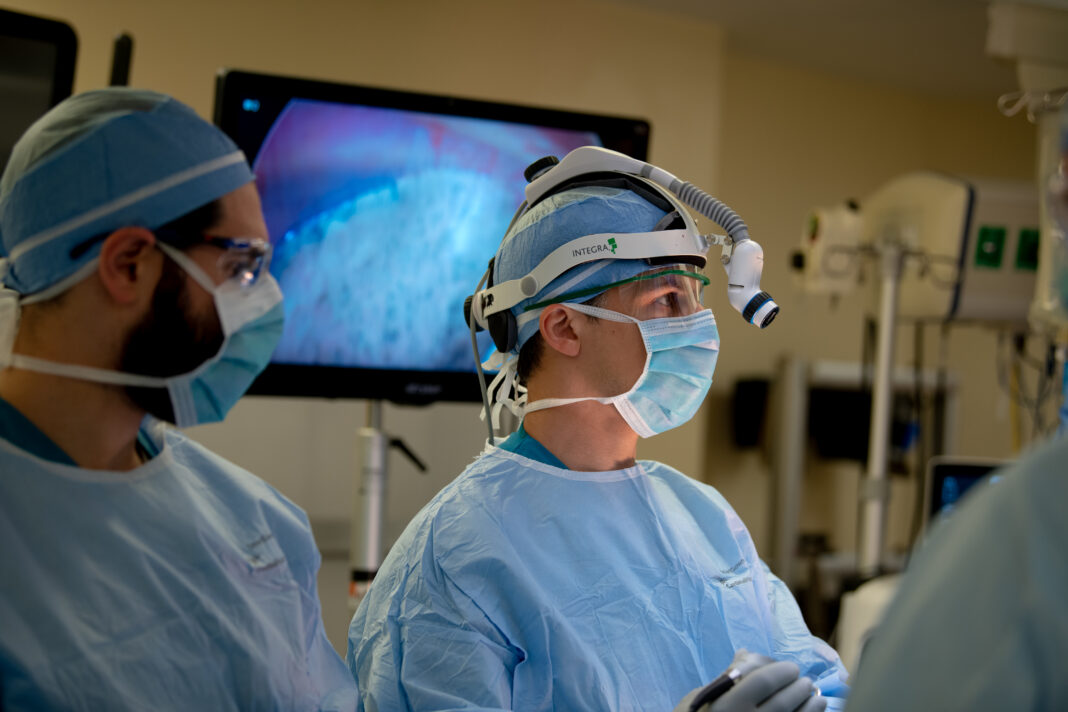By Leslie Krowchenko, Special to the Hellenic News of America
Kostantinos Poulikidis, M.D. has an easy way of explaining his area of expertise.
He handles all non-cardiac cases of the chest “from the throat to the belly.”
Dr. Poulikidis, a board-certified thoracic surgeon, is a member of the leadership team of the Advanced Lung and Airway Center at JFK University Medical Center in Edison and a thoracic surgeon at Bayshore Medical Center in Holmdel, New Jersey, two hospitals in the Hackensack Meridian Health Network. He and his colleagues screen, diagnose and treat patients with both benign and malignant disorders that affect breathing.
“Patients come to us at a very stressful time,” he said. “The question they are asking is ‘how is this diagnosis going to change my life.’”

A 2013 graduate of New York Medical College, Dr. Poulikidis completed his surgical residency at Stamford Hospital-Columbia University College of Physicians and Surgeons (Connecticut), followed by fellowships in thoracic and cardiovascular surgery at Loyola University Medical Center (Chicago) and minimally invasive thoracic surgery at Brigham and Women’s Hospital (Boston). Prior to joining Hackensack Meridian Health, Dr. Poulikidis was the attending thoracic surgeon at Nuvance Health (Connecticut).
Thoracic surgeons focus on the chest organs, including the heart, lungs and structures that surround them; trachea (windpipe), esophagus (muscular tube that passes food to the stomach), chest wall and diaphragm (muscle separating the chest and abdomen). The majority of his cases involve lung cancer, esophageal cancer or hiatal hernia (part of the stomach protrudes into the chest through the diaphragm).
Dr. Poulikidis selected his specialty based on his recollections as a youth spending summers in Greece. He remembered his grandparents, aunts and uncles smoking in cafés, a habit passed to their children. Although the nation now bans the practice in indoor public places and has initiated actions to prevent smoking from a very young age, the puffs taken decades ago resulted in some of his relatives developing lung cancer.
“Being Greek, I have a very strong attachment to my culture,” he said. “I was drawn to helping my family and my community.”

Patients are referred to Dr. Poulikidis by their primary care doctor if the latter suspects or has diagnosed a condition within the thoracic region related to longtime/former smoking, exposure to secondhand smoke/toxic fumes, a cough or presence of a nodule. Individuals are seen within one to two days and in conjunction with pulmonologists, radiologists, oncologists and pathologists, he determines the appropriate course of action.
“We confer on the most complicated cases and can provide excellent outcomes,” said Dr. Poulikidis. “I see anything involving thoracic surgery and there is nothing I need to refer to an additional specialist, which is a comfort when people realize they won’t have to go to another doctor.”
Many of his patients developed habits that make them candidates for lung cancer screenings – aged 50-80, those who have a 20-pack-year smoking history (a pack a day, every day) or currently smoke/have quit within the past 15 years. In all cases, the individuals may qualify for yearly low-dose computed tomography (CT) scans.
Lung cancer is the deadliest and second most prevalent malignancy in the United States, with more than 235,000 new cases anticipated this year, according to the American Lung Association. The disease typically manifests in one of two forms – non-small cell (NSCLC), which represents approximately 80 percent of cases, and small cell. The former grows and spreads more slowly; the latter, due almost exclusively to cigarette smoking, is fast-growing and multiplies more quickly.
Treatment options for NSCLC are based mainly on the stage (extent) of the cancer, the person’s overall health and lung function and certain traits of the cancer itself. One of the most critical things one can do to prepare for treatment is to quit smoking, as studies by the American Cancer Society show those who stop after a diagnosis of lung cancer tend to have better results than those who don’t.
Patients in the early stages may only require surgery to remove the cancerous tissue, without chemotherapy or radiation. Some lymph nodes in the lung and the space between the lungs will also be removed and checked for cancer.
Those in stage two or three typically need surgery followed by chemotherapy and/or immunotherapy (medicine used to activate one’s own immune system to recognize and kill cancer cells). Targeted therapy may be added to the regimen if the person displays genetic mutations known to be important in the development of the disease. A course of powerful drugs is administered to correct the abnormalities, shrink the cancer and stop its growth.
Dr. Poulikidis noted the excellent results of a patient in 2023 who received chemotherapy and immunotherapy pre- and post-op. Prior to the development of recent regimens, the individual may not have achieved the same positive outcome.

“The operation involved removing part of their lung, with treatment before and after,” he said. “The mass was left behind and no cancer was detected at all after surgery.”
Whether in the hospital or once they are home, Dr. Poulikidis recommends his patients start moving as soon as possible. Walking the halls or the house is key to their recovery.
“We want them to use their lungs,” he said. “Staying in bed is not to their benefit.”
Understanding the disease and communicating with one’s doctor are also essential components. Dr. Poulikidis explains treatment options using language his patients can understand and will “answer any question.” He also provides individuals with his phone number for issues that arise hours or days after the appointment.
“My job is to help patients – I put myself in their shoes and react to everyone as if they were my family,” he said. “I feel being emphatic provides comfort and confidence.”
He added he works with an excellent staff of nurse navigators (“they take care of everything, like making appointments and dealing with insurance companies, so patients just have to show up at the designated time and place”), nurse practitioners, medical assistants, secretaries and partners. They function as one to make a challenging time in people’s lives more manageable.
“It is already a difficult process and we strive to make it as easy as possible,” said Dr. Poulikidis. “I could not do that without my team.”







